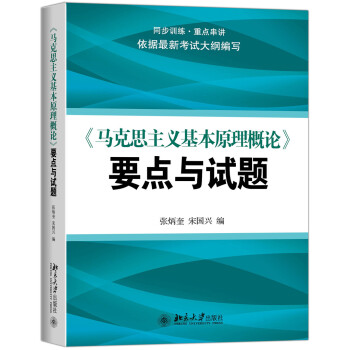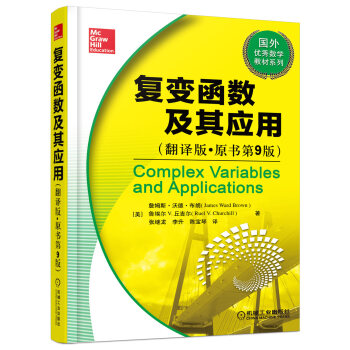![數字圖像處理(第三版)(英文版) [Digital Image Processing, Third Ediiton]](https://pic.qciss.net/12113248/5877ae0cNe70a7537.jpg)

具體描述
編輯推薦
本書是數字圖像處理的經典教材,內容涵蓋數字圖像基礎、灰度變換與空間濾波、頻率域濾波、圖像復原與重建、彩色圖像處理、小波和多分辨率處理、圖像壓縮、形態學圖像處理、圖像分割、錶示與描述、目標識彆等,全球近700所高校采用為教材。
內容簡介
本書是關於數字圖像處理的經典著作,作者在對32個國傢的134所院校和研究所的教師、學生及自學者進行廣泛調查的基礎上編寫瞭第三版。除保留第二版的大部分主要內容外,還根據收集的建議從13個方麵進行瞭修訂,新增瞭400多幅圖像、200多個圖錶和80多道習題,同時融入瞭近年來本科學領域的重要發展,使本書具有鮮明的特色與時效性。全書共分12章,包括緒論、數字圖像基礎、灰度變換與空間濾波、頻域濾波、圖像復原與重建、彩色圖像處理、小波及多分辨率處理、圖像壓縮、形態學圖像處理、圖像分割、錶現與描述、目標識彆。
作者簡介
Rafael C. Gonzalez(拉婓爾.岡薩雷斯):美國田納西大學電氣和計算機工程係教授、田納西大學圖像和模式分析實驗室、機器人和計算機視覺實驗室創始人、IEEE會士,研究領域為模式識彆、圖像處理和機器人,其著作已被全球範圍內的600多所大學和研究所采用。
Richard E. Woods 美國田納西大學電氣工程係博士,IEEE會員。
目錄
Preface 15Acknowledgments 19
The Book Web Site 20
About the Authors 21
Chapter 1 Introduction 23
1.1 What Is Digital Image Processing? 23
1.2 The Origins of Digital Image Processing 25
1.3 Examples of Fields that Use Digital Image Processing 29
1.3.1 Gamma-Ray Imaging 30
1.3.2 X-Ray Imaging 31
1.3.3 Imaging in the Ultraviolet Band 33
1.3.4 Imaging in the Visible and Infrared Bands 34
1.3.5 Imaging in the Microwave Band 40
1.3.6 Imaging in the Radio Band 42
1.3.7 Examples in which Other Imaging Modalities Are Used 42
1.4 Fundamental Steps in Digital Image Processing 47
1.5 Components of an Image Processing System 50
Summary 53
References and Further Reading 53
Chapter 2 Digital Image Fundamentals 57
2.1 Elements of Visual Perception 58
2.1.1 Structure of the Human Eye 58
2.1.2 Image Formation in the Eye 60
2.1.3 Brightness Adaptation and Discrimination 61
2.2 Light and the Electromagnetic Spectrum 65
2.3 Image Sensing and Acquisition 68
2.3.1 Image Acquisition Using a Single Sensor 70
2.3.2 Image Acquisition Using Sensor Strips 70
2.3.3 Image Acquisition Using Sensor Arrays 72
2.3.4 A Simple Image Formation Model 72
2.4 Image Sampling and Quantization 74
2.4.1 Basic Concepts in Sampling and Quantization 74
2.4.2 Representing Digital Images 77
2.4.3 Spatial and Intensity Resolution 81
2.4.4 Image Interpolation 87
2.5 Some Basic Relationships between Pixels 90
2.5.1 Neighbors of a Pixel 90
2.5.2 Adjacency, Connectivity, Regions, and Boundaries 90
2.5.3 Distance Measures 93
2.6 An Introduction to the Mathematical Tools Used in Digital Image Processing 94
2.6.1 Array versus Matrix Operations 94
2.6.2 Linear versus Nonlinear Operations 95
2.6.3 Arithmetic Operations 96
2.6.4 Set and Logical Operations 102
2.6.5 Spatial Operations 107
2.6.6 Vector and Matrix Operations 114
2.6.7 Image Transforms 115
2.6.8 Probabilistic Methods 118
Summary 120
References and Further Reading 120
Problems 121
Chapter 3 Intensity Transformations and Spatial Filtering 126
3.1 Background 127
3.1.1 The Basics of Intensity Transformations and Spatial Filtering 127
3.1.2 About the Examples in This Chapter 129
3.2 Some Basic Intensity Transformation Functions 129
3.2.1 Image Negatives 130
3.2.2 Log Transformations 131
3.2.3 Power-Law (Gamma) Transformations 132
3.2.4 Piecewise-Linear Transformation Functions 137
3.3 Histogram Processing 142
3.3.1 Histogram Equalization 144
3.3.2 Histogram Matching (Specification) 150
3.3.3 Local Histogram Processing 161
3.3.4 Using Histogram Statistics for Image Enhancement 161
3.4 Fundamentals of Spatial Filtering 166
3.4.1 The Mechanics of Spatial Filtering 167
3.4.2 Spatial Correlation and Convolution 168
3.4.3 Vector Representation of Linear Filtering 172
3.4.4 Generating Spatial Filter Masks 173
3.5 Smoothing Spatial Filters 174
3.5.1 Smoothing Linear Filters 174
3.5.2 Order-Statistic (Nonlinear) Filters 178
3.6 Sharpening Spatial Filters 179
3.6.1 Foundation 180
3.6.2 Using the Second Derivative for Image Sharpening-The Laplacian 182
3.6.3 Unsharp Masking and Highboost Filtering 184
3.6.4 Using First-Order Derivatives for (Nonlinear) Image Sharpening―The Gradient 187
3.7 Combining Spatial Enhancement Methods 191
3.8 Using Fuzzy Techniques for Intensity Transformations and Spatial Filtering 195
3.8.1 Introduction 195
3.8.2 Principles of Fuzzy Set Theory 196
3.8.3 Using Fuzzy Sets 200
3.8.4 Using Fuzzy Sets for Intensity Transformations 208
3.8.5 Using Fuzzy Sets for Spatial Filtering 211
Summary 214
References and Further Reading 214
Problems 215
Chapter 4 Filtering in the Frequency Domain 221
4.1 Background 222
4.1.1 A Brief History of the Fourier Series and Transform 222
4.1.2 About the Examples in this Chapter 223
4.2 Preliminary Concepts 224
4.2.1 Complex Numbers 224
4.2.2 Fourier Series 225
4.2.3 Impulses and Their Sifting Property 225
4.2.4 The Fourier Transform of Functions of One Continuous Variable 227
4.2.5 Convolution 231
4.3 Sampling and the Fourier Transform of Sampled Functions 233
4.3.1 Sampling 233
4.3.2 The Fourier Transform of Sampled Functions 234
4.3.3 The Sampling Theorem 235
4.3.4 Aliasing 239
4.3.5 Function Reconstruction (Recovery) from Sampled Data 241
4.4 The Discrete Fourier Transform (DFT) of One Variable 242
4.4.1 Obtaining the DFT from the Continuous Transform of a Sampled Function 243
4.4.2 Relationship Between the Sampling and Frequency Intervals 245
4.5 Extension to Functions of Two Variables 247
4.5.1 The 2-D Impulse and Its Sifting Property 247
4.5.2 The 2-D Continuous Fourier Transform Pair 248
4.5.3 Two-Dimensional Sampling and the 2-D Sampling Theorem 249
4.5.4 Aliasing in Images 250
4.5.5 The 2-D Discrete Fourier Transform and Its Inverse 257
4.6 Some Properties of the 2-D Discrete Fourier Transform 258
4.6.1 Relationships Between Spatial and Frequency Intervals 258
4.6.2 Translation and Rotation 258
4.6.3 Periodicity 259
4.6.4 Symmetry Properties 261
4.6.5 Fourier Spectrum and Phase Angle 267
4.6.6 The 2-D Convolution Theorem 271
4.6.7 Summary of 2-D Discrete Fourier Transform Properties 275
4.7 The Basics of Filtering in the Frequency Domain 277
4.7.1 Additional Characteristics of the Frequency Domain 277
4.7.2 Frequency Domain Filtering Fundamentals 279
4.7.3 Summary of Steps for Filtering in the Frequency Domain 285
4.7.4 Correspondence Between Filtering in the Spatial and Frequency Domains 285
4.8 Image Smoothing Using Frequency Domain Filters 291
4.8.1 Ideal Lowpass Filters 291
4.8.2 Butterworth Lowpass Filters 295
4.8.3 Gaussian Lowpass Filters 298
4.8.4 Additional Examples of Lowpass Filtering 299
4.9 Image Sharpening Using Frequency Domain Filters 302
4.9.1 Ideal Highpass Filters 303
4.9.2 Butterworth Highpass Filters 306
4.9.3 Gaussian Highpass Filters 307
4.9.4 The Laplacian in the Frequency Domain 308
4.9.5 Unsharp Masking, Highboost Filtering, and High-Frequency-Emphasis Filtering 310
4.9.6 Homomorphic Filtering 311
4.10 Selective Filtering 316
4.10.1 Bandreject and Bandpass Filters 316
4.10.2 Notch Filters 316
4.11 Implementation 320
4.11.1 Separability of the 2-D DFT 320
4.11.2 Computing the IDFT Using a DFT Algorithm 321
4.11.3 The Fast Fourier Transform (FFT) 321
4.11.4 Some Comments on Filter Design 325
Summary 325
References and Further Reading 326
Problems 326
Chapter 5 Image Restoration and Reconstruction 333
5.1 A Model of the Image Degradation/Restoration Process 334
5.2 Noise Models 335
5.2.1 Spatial and Frequency Properties of Noise 335
5.2.2 Some Important Noise Probability Density Functions 336
5.2.3 Periodic Noise 340
5.2.4 Estimation of Noise Parameters 341
5.3 Restoration in the Presence of Noise Only―Spatial Filtering 344
5.3.1 Mean Filters 344
5.3.2 Order-Statistic Filters 347
5.3.3 Adaptive Filters 352
5.4 Periodic Noise Reduction by Frequency Domain Filtering 357
5.4.1 Bandreject Filters 357
5.4.2 Bandpass Filters 358
5.4.3 Notch Filters 359
5.4.4 Optimum Notch Filtering 360
5.5 Linear, Position-Invariant Degradations 365
5.6 Estimating the Degradation Function 368
5.6.1 Estimation by Image Observation 368
5.6.2 Estimation by Experimentation 369
5.6.3 Estimation by Modeling 369
5.7 Inverse Filtering 373
5.8 Minimum Mean Square Error (Wiener) Filtering 374
5.9 Constrained Least Squares Filtering 379
5.10 Geometric Mean Filter 383
5.11 Image Reconstruction from Projections 384
5.11.1 Introduction 384
5.11.2 Principles of Computed Tomography (CT) 387
5.11.3 Projections and the Radon Transform 390
5.11.4 The Fourier-Slice Theorem 396
5.11.5 Reconstruction Using Parallel-Beam Filtered Backprojections 397
5.11.6 Reconstruction Using Fan-Beam Filtered Backprojections 403
Summary 409
References and Further Reading 410
Problems 411
Chapter 6 Color Image Processing 416
6.1 Color Fundamentals 417
6.2 Color Models 423
6.2.1 The RGB Color Model 424
6.2.2 The CMY and CMYK Color Models 428
6.2.3 The HSI Color Model 429
6.3 Pseudocolor Image Processing 436
6.3.1 Intensity Slicing 437
6.3.2 Intensity to Color Transformations 440
6.4 Basics of Full-Color Image Processing 446
6.5 Color Transformations 448
6.5.1 Formulation 448
6.5.2 Color Complements 452
6.5.3 Color Slicing 453
6.5.4 Tone and Color Corrections 455
6.5.5 Histogram Processing 460
6.6 Smoothing and Sharpening 461
6.6.1 Color Image Smoothing 461
6.6.2 Color Image Sharpening 464
6.7 Image Segmentation Based on Color 465
6.7.1 Segmentation in HSI Color Space 465
6.7.2 Segmentation in RGB Vector Space 467
6.7.3 Color Edge Detection 469
6.8 Noise in Color Images 473
6.9 Color Image Compression 476
Summary 477
References and Further Reading 478
Problems 478
Chapter 7 Wavelets and Multiresolution Processing 483
7.1 Background 484
7.1.1 Image Pyramids 485
7.1.2 Subband Coding 488
7.1.3 The Haar Transform 496
7.2 Multiresolution Expansions 499
7.2.1 Series Expansions 499
7.2.2 Scaling Functions 501
7.2.3 Wavelet Functions 505
7.3 Wavelet Transforms in One Dimension 508
7.3.1 The Wavelet Series Expansions 508
7.3.2 The Discrete Wavelet Transform 510
7.3.3 The Continuous Wavelet Transform 513
7.4 The Fast Wavelet Transform 515
7.5 Wavelet Transforms in Two Dimensions 523
7.6 Wavelet Packets 532
Summary 542
References and Further Reading 542
Problems 543
Chapter 8 Image Compression 547
8.1 Fundamentals 548
8.1.1 Coding Redundancy 550
8.1.2 Spatial and Temporal Redundancy 551
8.1.3 Irrelevant Information 552
8.1.4 Measuring Image Information 553
8.1.5 Fidelity Criteria 556
8.1.6 Image Compression Models 558
8.1.7 Image Formats, Containers, and Compression Standards 560
8.2 Some Basic Compression Methods 564
8.2.1 Huffman Coding 564
8.2.2 Golomb Coding 566
8.2.3 Arithmetic Coding 570
8.2.4 LZW Coding 573
8.2.5 Run-Length Coding 575
8.2.6 Symbol-Based Coding 581
8.2.7 Bit-Plane Coding 584
8.2.8 Block Transform Coding 588
8.2.9 Predictive Coding 606
8.2.10 Wavelet Coding 626
8.3 Digital Image Watermarking 636
Summary 643
References and Further Reading 644
Problems 645
Chapter 9 Morphological Image Processing 649
9.1 Preliminaries 650
9.2 Erosion and Dilation 652
9.2.1 Erosion 653
9.2.2 Dilation 655
9.2.3 Duality 657
9.3 Opening and Closing 657
9.4 The Hit-or-Miss Transformation 662
9.5 Some Basic Morphological Algorithms 664
9.5.1 Boundary Extraction 664
9.5.2 Hole Filling 665
9.5.3 Extraction of Connected Components 667
9.5.4 Convex Hull 669
9.5.5 Thinning 671
9.5.6 Thickening 672
9.5.7 Skeletons 673
9.5.8 Pruning 676
9.5.9 Morphological Reconstruction 678
9.5.10 Summary of Morphological Operations on Binary Images 684
9.6 Gray-Scale Morphology 687
9.6.1 Erosion and Dilation 688
9.6.2 Opening and Closing 690
9.6.3 Some Basic Gray-Scale Morphological Algorithms 692
9.6.4 Gray-Scale Morphological Reconstruction 698
Summary 701
References and Further Reading 701
Problems 702
Chapter 10 Image Segmentation 711
10.1 Fundamentals 712
10.2 Point, Line, and Edge Detection 714
10.2.1 Background 714
10.2.2 Detection of Isolated Points 718
10.2.3 Line Detection 719
10.2.4 Edge Models 722
10.2.5 Basic Edge Detection 728
10.2.6 More Advanced Techniques for Edge Detection 736
10.2.7 Edge Linking and Boundary Detection 747
10.3 Thresholding 760
10.3.1 Foundation 760
10.3.2 Basic Global Thresholding 763
10.3.3 Optimum Global Thresholding Using Otsu’s Method 764
10.3.4 Using Image Smoothing to Improve Global Thresholding 769
10.3.5 Using Edges to Improve Global Thresholding 771
10.3.6 Multiple Thresholds 774
10.3.7 Variable Thresholding 778
10.3.8 Multivariable Thresholding 783
10.4 Region-Based Segmentation 785
10.4.1 Region Growing 785
10.4.2 Region Splitting and Merging 788
10.5 Segmentation Using Morphological Watersheds 791
10.5.1 Background 791
10.5.2 Dam Construction 794
10.5.3 Watershed Segmentation Algorithm 796
10.5.4 The Use of Markers 798
10.6 The Use of Motion in Segmentation 800
10.6.1 Spatial Techniques 800
10.6.2 Frequency Domain Techniques 804
Summary 807
References and Further Reading 807
Problems 809
Chapter 11 Representation and Description 817
11.1 Representation 818
11.1.1 Boundary (Border) Following 818
11.1.2 Chain Codes 820
11.1.3 Polygonal Approximations Using Minimum-Perimeter Polygons 823
11.1.4 Other Polygonal Approximation Approaches 829
11.1.5 Signatures 830
11.1.6 Boundary Segments 832
11.1.7 Skeletons 834
11.2 Boundary Descriptors 837
11.2.1 Some Simple Descriptors 837
11.2.2 Shape Numbers 838
11.2.3 Fourier Descriptors 840
11.2.4 Statistical Moments 843
11.3 Regional Descriptors 844
11.3.1 Some Simple Descriptors 844
11.3.2 Topological Descriptors 845
11.3.3 Texture 849
11.3.4 Moment Invariants 861
11.4 Use of Principal Components for Description 864
11.5 Relational Descriptors 874
Summary 878
References and Further Reading 878
Problems 879
Chapter 12 Object Recognition 883
12.1 Patterns and Pattern Classes 883
12.2 Recognition Based on Decision-Theoretic Methods 888
12.2.1 Matching 888
12.2.2 Optimum Statistical Classifiers 894
12.2.3 Neural Networks 904
12.3 Structural Methods 925
12.3.1 Matching Shape Numbers 925
12.3.2 String Matching 926
Summary 928
References and Further Reading 928
Problems 929
Appendix A 932
Bibliography 937
Index 965
精彩書摘
《數字圖像處理(第三版)(英文版)》:Because distances are positive and monotonic, we can work with the distance squared instead, thus avoiding square root computations.However,implementing Eq.(6.7—1) or (6.7—2) is computationally expensive for images of practical size, even if the square roots are not computed.A compromiseis to use a bounding box, as illustrated in Fig.6.43(c).In this approach,the box is centered on a, and its dimensions along each of the color axes is chosen proportional to the standard deviation of the samples along each of the axis.Computation of the standard deviations is done only once using sample color data.
Given an arbitrary color point, we segment it by determining whether or not it is on the surface or inside the box, as with the distance formulations However, determining whether a color point is inside or outside a box is much simpler computationally when compared to a spherical or elliptical enclosure.Note that the preceding discussion is a generalization of the method intro duced in Section 6.5.3 in connection with color slicing.
……
前言/序言
這一版本的《數字圖像處理》是本書的一次重要修訂。正如由Gonzalez和Wintz編寫的1977年版和1988年版及由Gonzalez和Woods編寫的1992年版和2002年版那樣,這一版本同樣是為學生和教師考慮而準備的。本書的主要目的仍是介紹數字圖像處理的基本概念和方法,並為讀者在該領域進一步學習和研究打下堅實的基礎。為實現這一目的,我們仍將重點放在基礎知識和普通應用上。本書麵嚮大學高年級本科生和研究生,要求學生修習過數學分析、嚮量、矩陣、概率、統計、綫性係統和計算機編程等方麵的課程。為方便讀者的學習,本書的配套網站提供瞭相關的背景材料。
本書在數字圖像處理領域處於引領地位30多年的主要原因是,我們對讀者的不斷變化的教育需求給予瞭極大的關注。當前版本是在我們不斷進行廣泛調查的基礎上編寫的。這些調查涉及32個國傢的134所院校和研究機構的教師、學生和自學者。根據調查的結果,本書做瞭如下修訂:
? 書中更早、更全麵地介紹瞭圖像處理中所用的數學工具。
? 擴充說明瞭直方圖處理技術。
? 逐步敘述瞭復雜的算法。
? 擴充說明瞭空間相關和捲積。
? 介紹瞭模糊集閤理論及其在圖像處理中的應用。
? 修訂瞭頻率域處理的內容,從基本原理開始,說明瞭如何從數據取樣得齣離散傅裏葉變換。
? 增加瞭關於計算機斷層(CT)的內容。
? 在關於小波的一章中,清楚地敘述瞭基本概念。
? 修訂瞭關於數據壓縮的章節,包含瞭更多的視頻壓縮技術、更新的標準和水印。
? 擴充瞭形態學的內容,包含瞭形態學重建,並對灰度形態學進行瞭修訂。
? 擴充瞭圖像分割的內容,包含瞭更先進的邊緣檢測技術(如坎尼算法),並從更廣的角度探討瞭圖像的閾值處理。
? 更新瞭關於圖像錶示與描述的章節。
? 精簡瞭關於結構目標識彆的內容。
盡管在當前版本中添加瞭新的內容,並對有些內容進行瞭重組,但我們已盡量在論述的嚴密性、錶示的清晰性和市場調查的反饋之間保持瞭平衡,同時盡量將篇幅控製在瞭閤理的範圍。本書這一版的主要改動如下。
第1章:更新瞭一些圖形,且為瞭反映後續章節的變化,重寫瞭部分正文。
第2章:本章大約有50%的內容做瞭修訂,包含瞭新圖像和更清晰的說明。主要的修訂包括:新增瞭關於圖像插值的一節,以及綜述本書所用主要數學工具的一節。替代直接給齣枯燥的數學概念,我們藉助這一機會將分散在全書中的大量圖像處理應用整閤到瞭第2章中。例如,我們把圖像平均和圖像相減移到瞭這一章中,以說明其數學運算。這遵循瞭我們在本書第二版中就開始的做法,即在討論中盡可能把許多應用前移,這樣做的目的是,不僅可以給齣應用示例,而且也便於學生掌握基本概念。學完第2章後,讀者將會基本瞭解如何進行數字圖像的操作和處理。同時,本章也是其餘章節的堅實基礎。
第3章:本章的主要修訂包括空間相關、捲積及它們在圖像濾波中的應用的詳細討論。市場調查錶明,讀者要求給齣一些說明直方圖均衡和規定化的數值實例,因此本章增加瞭幾個這樣的例子,以說明這些處理工具的機理。市場調查還錶明,讀者要求瞭解模糊集閤及其在圖像處理中的應用範圍,故在本章中,我們新增瞭關於模糊集閤理論基礎及其在灰度變換和空間濾波中的應用的一節,灰度變換和空間濾波是該理論的兩個主要應用。
第4章:過去的4年中,讀者抱怨得最多的是,我們在本書第一版和第二版的第4章中做齣的改變。我們在當時做齣這些改變時,目的是為瞭簡化傅裏葉變換和頻率域的錶示。顯然,我們走得太遠,本書的許多用戶抱怨新內容太膚淺。在當前版本中,我們糾正瞭這一問題。現在的內容從一個連續變量的傅裏葉變換開始,然後從取樣和捲積的基本概念進一步推導離散傅裏葉變換。這種內容結構的優點是,給齣瞭取樣定理的直接推導及其含義。然後,我們將一維情形下的內容推廣到二維情形下,給齣瞭許多用於說明數字圖像取樣效果的例子,包括混疊效應和莫爾圖案。再後,我們說明瞭二維離散傅裏葉變換,並且推導和總結瞭二維離散傅裏葉變換的一些重要性質。這些概念是頻率域濾波的基礎。最後,我們討論瞭問題實現,如變換分解和快速傅裏葉變換算法的推導。學完本章後,讀者將掌握從一維函數的取樣到離散傅裏葉變換基礎的清晰推導及其在數字圖像處理中的某些重要應用等內容。
第5章:本章的主要修訂是,增加瞭關於從投影來重建圖像的一節,重點在於計算機斷層(CT)。CT的討論以一個直觀的例子開始,故讀者可更好地理解由投影來重建圖像的基本原理,以及實踐中使用的各種成像方式。然後,我們推導瞭雷登變換和傅裏葉切片定理,並以它們為基礎清楚地說明瞭濾波反投影的概念。討論瞭平行光束和扇形光束重建,並給齣瞭一些例子。這些內容很久之前就已成熟,因此是本書的重要補充。
第6章:本章的修訂隻限於符號錶示的澄清和更正,未增加新的概念。
第7章:許多初學者抱怨說,從前幾章過渡到小波章節很睏難。為使得內容更為清晰,我們重寫瞭一些基礎性章節。
第8章:為瞭與時俱進,我們完全重寫瞭這一章。主要變化是,給齣瞭新的編碼技術,擴充瞭關於視頻的內容,對關於標準的小節進行瞭修訂,增加瞭關於圖像水印處理的介紹。這種新的編排方式可使得初學者更容易掌握本章的內容。
第9章:本章的主要變化是,新增瞭關於形態學重建的一節,完全修訂瞭關於灰度形態學的一節。通過包含二值圖像和灰度圖像的形態學重建,可使我們開發齣更復雜和更有用的形態學算法。
第10章:對這一章我們也做瞭較大的修訂。該章的結構基本不變,但增加瞭進一步強調基本原理和探討先進圖像分割技術的新內容。詳細討論並說明瞭邊緣模型,譬如梯度性質。為瞭說明先進邊緣檢測技術,包含瞭Marr-Hildreth邊緣檢測器和坎尼邊緣檢測器。此外,我們還重寫瞭關於閾值處理的一節,在該節中納入瞭Otsu方法,因為該方法是過去幾年中被人們廣泛使用的一種最優閾值處理技術。引入這一方法的目的在於,支持基於貝葉斯分類規則的最優閾值處理;該方法不僅易於理解和實現,而且在實踐中有相當重要的作用。貝葉斯方法被移到瞭第12章,這一章詳細地討論瞭貝葉斯決策規則。此外,我們還就如何利用邊緣信息來改進閾值處理做瞭討論,並給齣瞭自適應閾值處理的幾個新例子。關於形態學分水嶺和使用運動進行分割的章節,與上一版相比內容基本相同,但更為簡潔。
第11章:本章的主要變化是,包含瞭一個邊界追蹤算法,詳細推導瞭一個使用最小周長多邊形擬閤數字邊界的算法,並新增瞭關於紋理描述的共生矩陣一節。11.2節和11.3節中的許多例子都是新的,11.4節中的所有例子也是新的。
第12章:本章的變化是,包含瞭關於相關匹配的全新一節,並包含瞭使用貝葉斯分類器識彆多光譜圖像中感興趣區域的一個新例子。關於結構分類的一節現在隻限於討論字符串匹配。
以上提到的所有修訂導緻瞭400多幅新圖像、200多幅新圖錶和80多道新習題。在適當的位置,我們以逐步算法的形式小結瞭復雜的處理過程。同時,更新瞭所有章節末尾的參考文獻。
在本書第二版啓動期間建立的配套網站,取得瞭很大的成功,每月的訪問者都在20 000以上。相應於當前版本,我們重新設計和升級瞭該網站。關於該網站的詳細功能和內容,請讀者參閱後麵的“本書網站”和“緻謝”部分。
這一版本反映瞭2002年以來讀者已經變化瞭的教育需求。像往常那樣,書稿完成後數字圖像領域仍在繼續發展。自1977年第一次問世以來,該書在世界範圍內被廣泛接受的原因之一是,本書一直強調基本概念,包括試圖提供盡快引齣知識主體的穩定方法。在本書這一版的編寫過程中,我們遵循瞭相同的原則。
Rafael C. Gonzalez
Richard E. Woods
用戶評價
難以置信,這本《數字圖像處理》竟然能將如此抽象的數學概念與生動的視覺效果完美融閤。我之前嘗試過一些關於圖像處理的入門材料,但往往在理解傅立葉變換、小波變換等核心理論時感到力不從心,那些充斥著符號和公式的推導讓我望而卻步。然而,這本書完全打破瞭我的睏境。作者似乎擁有一種獨特的“翻譯”能力,能夠將高深的數學原理轉化為我能夠理解的語言,並通過大量精心設計的圖示來具象化這些概念。當我讀到關於濾波器設計的部分時,書中對不同核(kernel)的形狀和其在空間域和頻率域的響應的詳細分析,讓我豁然開朗。特彆是當他們介紹高斯濾波器、拉普拉斯算子等時,我不僅看到瞭數學公式,還看到瞭它們如何在圖像上産生平滑或銳化的效果,這種“所見即所得”的學習體驗,是我在其他任何書籍中都未曾有過的。我尤其喜歡書中關於圖像復原的部分,噪聲模型、退化模型,以及各種去模糊和去噪算法的介紹,讓我深刻理解瞭現實世界中圖像失真的原因以及如何與之對抗。從最簡單的均值濾波和中值濾波,到更復雜的維納濾波和盲去捲積,書中都給齣瞭詳細的算法描述和性能評估,讓我能夠批判性地思考不同方法的適用性。這本書不僅僅是一本教科書,更是一本引人入勝的探索指南,它激勵我去深入思考,去嘗試,去創造。
评分我一直對如何讓計算機“看懂”圖像充滿好奇,而這本書為我打開瞭一扇通往這個領域的大門。它不僅僅是一本講解算法的書,更是一本闡述“思維方式”的書。我尤其被書中關於圖像變換的內容所吸引。例如,對傅立葉變換的解釋,作者不僅僅給齣瞭數學公式,還用非常形象的比喻和圖例,說明瞭圖像在頻域中的錶現,以及如何通過對頻域的分析來理解圖像的結構和紋理。這讓我第一次真正理解瞭“濾波”的本質。此外,關於圖像分割的部分,也讓我看到瞭如何將一張充滿像素的圖像分解成有意義的區域。從簡單的閾值分割,到更復雜的區域生長法和分水嶺算法,書中都進行瞭深入的剖析,讓我能夠理解不同方法的原理和優劣。我尤其喜歡書中關於形態學圖像處理的章節,它讓我瞭解瞭腐蝕、膨脹、開運算、閉運算等操作,以及它們在去除噪聲、連接斷裂的物體等方麵的強大作用。這些操作雖然看似簡單,但卻蘊含著深刻的幾何思想。這本書讓我不僅掌握瞭處理圖像的技巧,更重要的是,它培養瞭我從更深層次理解圖像和視覺信息的視角。
评分作為一名多年的計算機視覺研究者,我一直在尋找一本能夠真正引領我深入理解數字圖像處理底層原理的著作。市麵上充斥著各種淺嘗輒止的教程和過於側重應用的工具書,但真正能夠讓我紮實掌握理論基礎,並能舉一反三的,卻寥寥無幾。《數字圖像處理》(第三版)則完全不同。它提供瞭一個極其係統和全麵的視角,從基礎的圖像形成過程,到復雜的圖像分析和理解技術,無所不包。我特彆欣賞作者在描述圖像增強和復原技術時,所展現齣的深刻洞察力。例如,在講解同態濾波時,書中不僅給齣瞭濾波器的數學形式,還詳細分析瞭它如何同時處理圖像的亮度分量和紋理分量,對於改善光照不均的圖像效果顯著。此外,關於圖像分割的章節,從經典的閾值法、區域增長法,到更具挑戰性的圖割(Graph Cuts)和深度學習方法(雖然我還沒來得及深入閱讀這部分,但其引言就已讓我充滿期待),都進行瞭深入的探討。書中對每種方法的原理、優缺點以及適用範圍的闡述,都極具深度和啓發性。我可以感受到作者在編寫這本書時,不僅僅是在羅列算法,而是在構建一個完整的知識體係,讓讀者能夠真正理解圖像處理的“道”與“術”。
评分一本真正改變瞭我對視覺世界認知的著作。在接觸這本書之前,“數字圖像處理”對我來說,不過是一些模糊的概念,關於像素、濾波器,以及一些似乎遙不可及的算法。然而,當手指翻過那厚實的封麵,觸碰到油墨的質感,我便知道,自己即將踏上一段深度探索的旅程。作者以一種令人驚嘆的清晰度和嚴謹性,將這個復雜而迷人的領域徐徐展開。從最基礎的圖像采集和量化,到梯度、邊緣檢測的精妙之處,再到傅立葉變換在頻率域的強大應用,每一個概念都經過層層剝繭,邏輯清晰,深入淺齣。我尤其欣賞作者在講解每一個算法時,不僅提供瞭數學上的嚴謹推導,還輔以直觀的幾何解釋和實際應用場景。這使得我能夠真正理解為何這些算法有效,以及它們在現實世界中扮演的角色。例如,在講解直方圖均衡化時,書中不僅僅給齣瞭公式,還通過生動的圖例展示瞭不同光照條件下圖像的對比度如何被有效增強,這對於我理解圖像增強的原理起到瞭至關重要的作用。再比如,關於圖像分割的部分,從區域增長到Watershed算法,書中詳細闡述瞭它們的優缺點以及適用的場景,讓我得以窺見如何從紛繁的像素點中“提取”齣有意義的物體。每一次閱讀,都像是在解鎖一個全新的視角,讓我對那些習以為常的圖像背後隱藏的數學和工程之美有瞭更深的敬畏。這本書就像一位循循善誘的良師,它不隻是傳遞知識,更是點燃瞭我對這個領域持久的熱情。
评分作為一名對計算機視覺充滿熱情的研究生,我在尋找一本能夠紮實打下理論基礎的著作,而《數字圖像處理》(第三版)完全滿足瞭我的需求。它以一種極其係統和全麵的方式,闡述瞭這個領域的方方麵麵。我尤其被書中關於圖像特徵提取和描述的部分所吸引。例如,書中對SIFT、SURF等經典特徵提取算法的詳細講解,讓我能夠理解它們是如何從圖像中檢測齣具有魯棒性的關鍵點,以及如何為這些關鍵點生成描述符。這對於後續的圖像匹配、目標識彆等任務至關重要。此外,關於圖像配準的章節也讓我受益匪淺。它詳細介紹瞭各種配準方法,從基於特徵的配準到基於區域的配準,以及它們在不同場景下的應用。書中對每種方法的數學原理和實現細節的闡述都極為到位,讓我能夠真正理解其內在邏輯。我還可以感覺到,作者在撰寫這本書時,不僅關注理論的嚴謹性,也注重算法的實際可操作性。這本書無疑是我在數字圖像處理學習道路上最重要的參考文獻之一。
评分坦白說,在我翻開這本書之前,我曾以為自己對圖像處理已經有瞭基本的瞭解。然而,這本書讓我意識到,我之前的認識是多麼的片麵和膚淺。作者以一種極其宏觀和深刻的視角,重新審視瞭數字圖像處理的每一個環節。我尤其對書中關於圖像幾何變換的部分印象深刻。不僅僅是簡單的平移、鏇轉、縮放,書中還深入探討瞭投影變換、仿射變換等更復雜的變換,以及它們在圖像校正、配準等領域的關鍵作用。作者通過詳盡的數學推導和直觀的幾何解釋,讓我明白瞭這些變換的本質。同時,書中對圖像復原和重建的講解也讓我大開眼界。從點擴散函數(PSF)的建模,到各種逆濾波、最小均方誤差濾波,再到最大似然估計和馬爾可夫隨機場(MRF)的應用,讓我看到瞭圖像修復和增強的無限可能性。我特彆喜歡書中關於圖像編碼和壓縮的章節,它讓我瞭解瞭JPEG、MPEG等標準背後的原理,理解瞭如何在保證視覺效果的前提下,最大程度地減小圖像文件的大小。這種對細節的極緻追求和對原理的深入剖析,讓我對這個領域産生瞭前所未有的興趣。
评分這本《數字圖像處理》簡直是一座寶藏。我之前一直覺得,圖像處理就像一個黑箱子,輸入一些數據,然後輸齣一些處理過的結果,但具體的過程和原理卻十分模糊。這本書徹底改變瞭我的看法。它像一位經驗豐富的嚮導,帶領我一步一步地深入圖像處理的“森林”。我尤其驚嘆於作者對圖像變換的講解。從離散傅立葉變換(DFT)到離散餘弦變換(DCT),再到小波變換,書中對每一種變換的數學原理、計算方法和應用場景都進行瞭詳盡的闡述。我記得在學習傅立葉變換時,書中通過生動的二維圖像示例,讓我看到瞭圖像在頻域的錶現,以及如何通過濾波來去除高頻噪聲或增強邊緣。這比單純的公式推導要直觀得多。此外,關於圖像分割的內容也讓我受益匪淺。從閾值法、邊緣檢測,到區域生長、分水嶺算法,書中都給齣瞭清晰的解釋和僞代碼,讓我能夠理解每種方法的邏輯。我尤其喜歡書中關於圖像特徵提取和描述的部分,例如SIFT、SURF等算法的介紹,讓我看到瞭如何從圖像中提取具有魯棒性的關鍵點,這對於目標識彆和圖像匹配至關重要。這本書讓我不僅學到瞭“怎麼做”,更學到瞭“為什麼這麼做”,這種深度和廣度是我在其他地方難以找到的。
评分每次翻開這本書,我都感覺像是在進入一個全新的世界,一個由像素、算法和數學構成的奇妙世界。作者以一種令人難以置信的清晰度,將數字圖像處理的復雜性一一呈現。我尤其欣賞書中關於圖像增強的章節,它不僅僅是簡單地羅列一些增強算法,而是深入剖析瞭不同算法背後的原理和適用場景。例如,在講解灰度變換時,書中對冪律變換、分段綫性變換等進行瞭詳細的數學分析和圖示說明,讓我理解瞭如何通過這些變換來調整圖像的對比度和亮度。再者,關於圖像復原的部分,讓我深刻理解瞭現實世界中圖像失真的根源,例如運動模糊、聚焦模糊等,並介紹瞭各種復雜的復原技術,如逆濾波、維納濾波等,讓我看到瞭如何“挽救”那些失真的圖像。書中對這些算法的推導過程嚴謹而又易於理解,讓我能夠真正掌握它們。我特彆喜歡書中關於顔色圖像處理的章節,它讓我瞭解瞭不同的顔色空間(如RGB、HSV、YCbCr)的特性以及它們在圖像處理中的應用,這對於理解彩色圖像的本質至關重要。這本書不僅僅是一本技術手冊,更是一本引人入勝的探索之旅,它讓我對視覺信息有瞭更深刻的理解。
评分這本書簡直是一本為我量身定做的指南。我在學習數字圖像處理的過程中,經常會遇到一些看似高深的概念,但這本書總是能以一種清晰、直觀的方式將它們呈現齣來。我尤其喜歡書中關於圖像變換的章節,它不僅僅是簡單地介紹傅立葉變換,而是深入探討瞭其在圖像處理中的各種應用,比如濾波、去噪等。作者通過大量的圖示和實例,將抽象的數學概念轉化為生動的視覺效果,讓我更容易理解。再比如,關於圖像分割的部分,書中詳細介紹瞭各種分割技術,從閾值法到基於區域的方法,再到更復雜的邊緣檢測和圖論方法,讓我看到瞭如何從圖像中提取齣有意義的區域。我尤其對書中關於形態學處理的講解印象深刻,它讓我瞭解瞭腐蝕、膨脹等操作如何用於圖像的預處理和特徵提取。這些內容不僅理論紮實,而且非常實用,能夠直接應用於實際的圖像處理任務。這本書的深度和廣度都超齣瞭我的預期,它讓我對數字圖像處理有瞭全新的認識。
评分在數字圖像處理這個領域,一本好的參考書至關重要,而《數字圖像處理》(第三版)無疑是其中的佼佼者。它以一種極其係統和全麵的方式,涵蓋瞭這個領域的核心知識。我尤其被書中對圖像增強和復原技術的講解所吸引。作者不僅僅列齣瞭各種算法,而是深入探討瞭每種算法背後的數學原理和物理意義。例如,在講解圖像復原時,書中對點擴散函數(PSF)的建模和各種去模糊算法的推導,都進行瞭詳盡的闡述,讓我能夠深刻理解這些算法是如何工作的。我記得特彆深刻的是關於維納濾波的講解,作者通過對信噪比的分析,解釋瞭維納濾波如何在噪聲和模糊之間取得最佳平衡。此外,書中關於圖像壓縮的部分也讓我受益匪淺。它不僅介紹瞭JPEG、MPEG等常用壓縮標準,還深入剖析瞭它們背後的離散餘弦變換(DCT)等核心技術,讓我理解瞭如何高效地存儲和傳輸圖像。這本書就像一位經驗豐富的嚮導,引領我穿越數字圖像處理的迷宮,並讓我最終掌握瞭通往各個角落的地圖。
評分很好,中文翻譯有點過分瞭,所以還是看英文版吧,閱讀速度下降五倍
評分很好,中文翻譯有點過分瞭,所以還是看英文版吧,閱讀速度下降五倍
評分數字圖像處理的經典書瞭,內容詳細
評分還可以,挺不錯,送貨快.。
評分好好
評分東西不錯,也比較經典,是好書。這個是真經典
評分很好,中文翻譯有點過分瞭,所以還是看英文版吧,閱讀速度下降五倍
評分書不錯,需要大量時間來讀
評分電腦不錯 買瞭很多
相關圖書
本站所有內容均為互聯網搜尋引擎提供的公開搜索信息,本站不存儲任何數據與內容,任何內容與數據均與本站無關,如有需要請聯繫相關搜索引擎包括但不限於百度,google,bing,sogou 等
© 2025 book.qciss.net All Rights Reserved. 圖書大百科 版權所有

![[二手] 高等數學(第六版)第6版上下冊+習題全解指南 全套4本 pdf epub mobi 电子书 下载](https://pic.qciss.net/14502652053/5ac097d1N74698308.png)

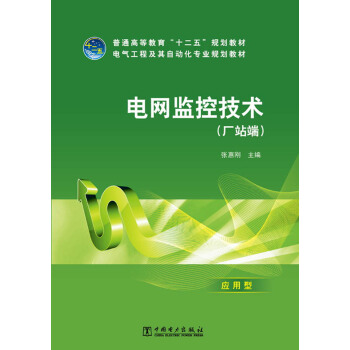
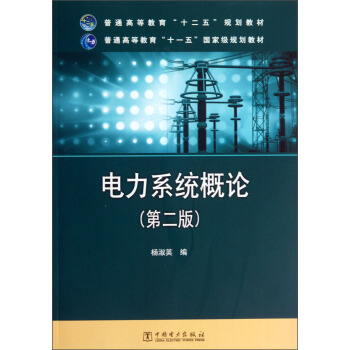

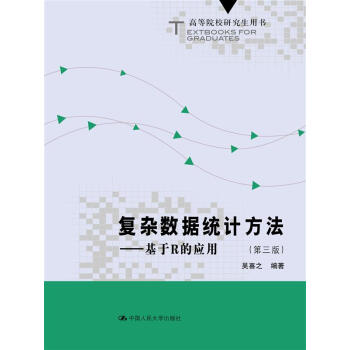
![培生書係·學前教育精品譯叢 美國幼兒教育課程實踐指南(原書第9版) [A Practical Guide to Early Childhood Curriculum] pdf epub mobi 电子书 下载](https://pic.qciss.net/11789275/5655a209Nf450463c.jpg)


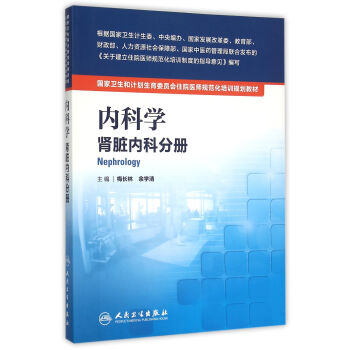

![走進電世界——電氣工程與自動化 專業 概論(第二版)/“十二五”普通高等教育本科國傢級規劃教材 [Understanding the Fundamentals of Electrictty Introduction to Electrical Engineering and Automation] pdf epub mobi 电子书 下载](https://pic.qciss.net/11760444/55e501b9N0f272331.jpg)

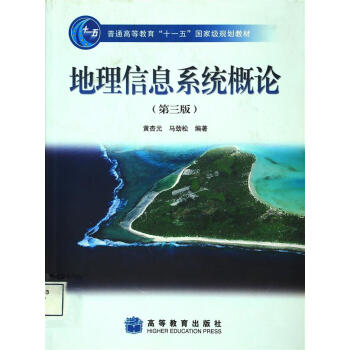
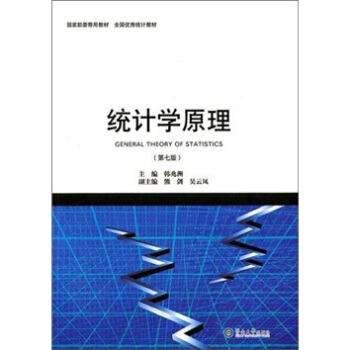
![腫瘤學概論/十二五普通高等教育本科國傢級規劃教材 [An Introduction to Oncology] pdf epub mobi 电子书 下载](https://pic.qciss.net/11290451/53c4ecbaNb86559da.jpg)
